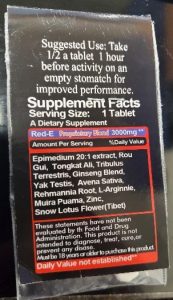Every business owner needs to know and follow the basic product safety laws that exist in their country. Keep these laws in mind as you work to prioritize product safety.
Whether you’re the owner of a small business or you’re selling products online, knowing about product safety laws can help you protect yourself and your customers from harm. Understanding the most relevant product laws and applying them will help prevent problems and liabilities before they arise. With adequate research and best practices with manufacturing, you’ll be able to comply with industry standards.
Product Safety Requirements
In today’s business climate, it’s important to protect against potential liabilities due to malfunctioning products. Product safety law comes in several forms, each designed to help protect consumers from dangerous products and businesses from costly lawsuits. Keep reading to learn more about important product safety best practices and laws to protect your customers and business.
Best Practices for Product Safety
Before manufacturing begins, you’ll need to appoint a representative who can help you understand all of the many product safety laws and best practices. Working with a product safety and conformity representative will help you identify and follow the most pertinent safety standards. The person who fills this role should be an integral part of your business team, so make sure it’s someone with expertise in both product safety and conformity regulations. This person may also be able to suggest solutions when new rules are enacted during production or provide support when working with different government agencies.
1. Federal Consumer Product Safety Act
The Federal Consumer Product Safety Act is a federal law that is designed to ensure that products sold in retail outlets, online, and those that are manufactured for export meet reasonable safety standards. The CPSC monitors such goods and can recall or fine companies that sell defective or dangerous goods.
Though this law has no power over manufacturers who make goods for private label (brand-name) customers, it does oversee imported products and can bar entry of items that fail to meet standards. Under FCSSA, companies must notify the CPSC within 24 hours if they receive a report of a product that could create a substantial risk of injury or death.
2. Merchandising Practices Act
In 1968, Congress enacted Title 15 of the United States Code, Section 1261-1265, more commonly known as the Merchandising Practices Act, which protects consumers from unfair or deceptive practices used by manufacturers and retailers in promoting and selling consumer products. This federal law prohibits deceptive labeling or packaging of a product. It also prohibits a manufacturer from changing a product label without notifying all affected sellers of such change prior to the said change being implemented on each affected item.

For example, a retailer who receives a new shipment of goods with altered labels has five days in which he must notify all buyers who purchased that particular product during that week prior to such alteration taking place. Failure to comply can result in heavy fines.
3. Sale of Used Merchandise Act
The Sale of Used Merchandise Act establishes guidelines for what can and cannot be sold by retailers. It covers items purchased by one business from another, either at a used-merchandise sale or overstock sale or bought in bulk or lots. The Act prohibits these businesses from selling goods that are adulterated, misbranded, dangerously defective, or unsafe. This includes commercial transactions between different companies.
For example, if an employee leaves an office supply store with 200 boxes of paper clips for personal use, he can’t then sell them on eBay because they were purchased in bulk at a discount price. As this price was likely below fair market value, reselling the product hurts both consumers and other companies trying to make a profit through legitimate means.
4. Unfair Sales Practices Act
As a business owner, it is important that you know what your rights are when it comes to making a sale. Although there may be times when you feel like pressuring a customer into buying from you, even if they say no, most experts recommend against it. For example, if an individual says no to buying your product or service for one reason, don’t try and convince them by claiming that they will lose out on something else.
This is called an unfair sales practice and it’s illegal in most states. Make sure that you know what laws affect how you operate as a business owner and respect those laws at all times.
Every business owner needs to know and follow the basic product safety laws that exist in their country. Keep these laws in mind as you work to prioritize product safety.


Join the conversation!